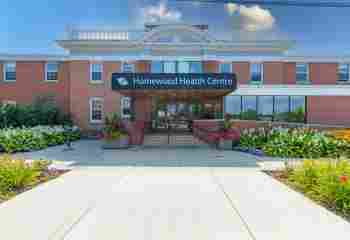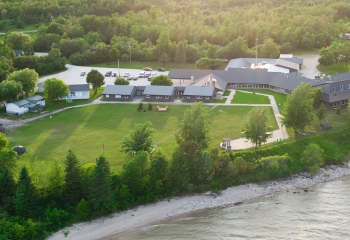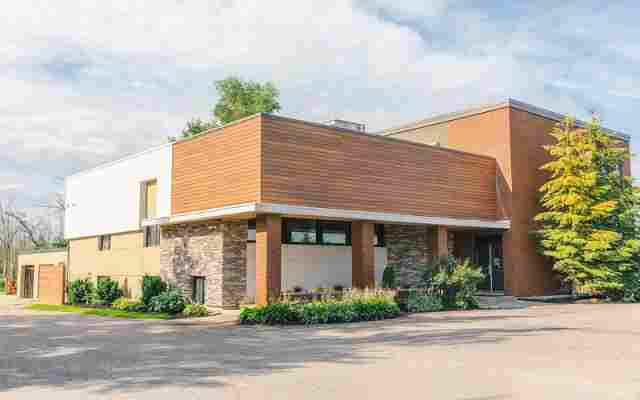Rehab in Ontario
If you're looking for movie nights, yoga, and swimming to help you on your road to recovery from alcohol and drug abuse and other disorders like anxiety and depression, Ontario has a plethora of treatment facilities and rehab centres waiting to accommodate your journey. Many focus on one-on-one treatment or small group therapy to help, making your experience as easy as possible. With many rehab locations all over Ontario, there is sure to be the right fit for your needs.
This Canadian province is home to multiple large cities, including the Canadian capital of Ottawa, and boasts natural beauty with its many lakes and wooded areas. Fun activities here include visiting Niagara Falls, hiking and canoeing, and exploring the cities, like Toronto which is right on the lake.
Insurance Coverage: Does my insurance cover addiction or mental health treatment?
History & Background
In the mid-1960s, the U.S. and Canada each introduced their versions of Medicare, with the U.S. system covering seniors and those with certain health conditions, facing industry backlash. Canada's system, praised for its inclusivity, allows all Canadians access, though provinces decide on necessary services. What is the difference between the US and Canada? The U.S. funds Medicare through payroll taxes, whereas Canada's publicly funded, single-payer system covers healthcare costs, highlighting significant differences in funding and coverage between the two nations.
The Canadian Health Act (CHA) aims to ensure the health and well-being of Canada's residents by providing equitable access to health services without financial obstacles. It sets conditions for provinces and territories to receive federal funds, emphasizing prepaid access to necessary health services to all eligible Canadians, thereby removing direct service charges. This framework is foundational to Canada's health policy, focusing on protecting and promoting physical and mental health.
How does Canadian Medicare Work?
Canada's Medicare system, a publicly funded healthcare structure, comprises 13 provincial and territorial plans, offering residents access to essential medical services without direct charges. Healthcare responsibilities are divided, with provinces and territories managing service delivery, while the federal government sets national standards, provides funding, and caters to specific groups under the Canada Health Act. This collaborative framework ensures universal healthcare coverage across the country.
It is important to note that Canadian Medicare, funded by federal and provincial taxes, may not cover all medical expenses, leading to additional out-of-pocket costs for dental and vision care services. While public health insurance eliminates deductibles, Canadians still contribute through taxes, averaging $5,789 annually per the Fraser Institute. This system ensures higher earners contribute more, supporting more affordable healthcare access for lower-income families and offering a cost-effective approach compared to the average American's health expenditure.
Generally speaking, according to the Government of Canada, the federal government is responsible for:
•Setting and administering national standards for the health care system through the Canada Health Act
•Providing funding support for provincial and territorial health care services
•Supporting the delivery of health care services to specific groups
•Providing other health-related functions
Public & Private Payment Options
In Canada, accessing timely, affordable, and effective drug and alcohol addiction treatment is feasible, with options for both publicly and privately funded treatments available. While the country's Medicare system covers addiction and psychiatric disorders, allowing for free treatment at public centres, these can have long wait times due to limited availability. Conversely, private centres offer quicker access but at a higher cost, either out-of-pocket or through insurance. It's crucial for individuals seeking rehab in Canada to carefully consider their treatment preferences and make an informed choice between public and private care options.
The 4 Pillars of Care
The Canadian approach to substance use and addiction encompasses what is referred to as the 4 pillars, which include prevention, treatment, harm reduction, and enforcement. Treatment options vary, including outpatient services in community settings, inpatient care for those with additional health issues, residential rehab for complex addictions, withdrawal management centres for safe detox, and continuing care to support long-term recovery. Each setting caters to different needs, ensuring individuals receive tailored support.
Care for Diverse Communities
In Canada, addiction treatment is tailored to diverse communities, including culturally informed programs for Indigenous populations, specialized services for veterans facing trauma and addiction, and initiatives by the Canadian Centre on Substance Use and Addiction (CCSA) for broader substance misuse challenges. These efforts are supported by government and non-governmental organizations to ensure accessible, culturally sensitive, and effective treatment and support across the nation.
The Canadian Health Act (CHA) and Canada's Medicare system work together to provide residents with equitable, universal healthcare, emphasizing accessibility without financial barriers. Managed by provincial and territorial governments with federal oversight, this system covers essential services, though some, like dental and vision care, may incur out-of-pocket costs. It's designed to be affordable, with a tax structure with higher earners contributing more to ensure lower-income families can access care, aiming to be a cost-effective healthcare solution.
In Canada, addiction treatment is tailored to diverse communities, including culturally informed programs for Indigenous populations, specialized services for veterans facing trauma and addiction, and initiatives by the Canadian Centre on Substance Use and Addiction (CCSA) for broader substance misuse challenges. These efforts are supported by government and non-governmental organizations to ensure accessible, culturally sensitive, and effective treatment and support across the nation.


























































































